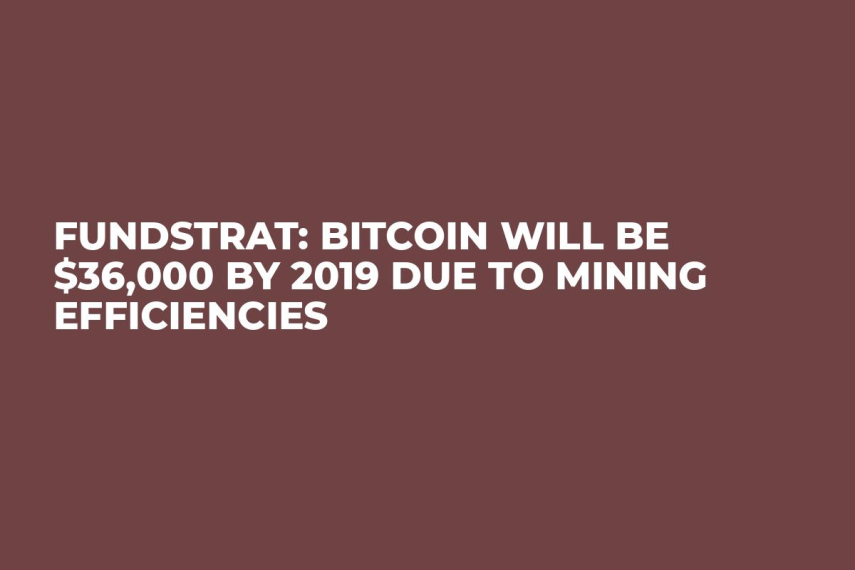
Fundstrat Global Advisors, the research firm known for its bullish Bitcoin bets, released forecasts that Bitcoin could propel to $36,000 due to improvements in mining, by late 2019.
The company’s basis for the findings is a metric which compares the price of Bitcoin against miner’s break-even costs as a long term reliable indicator to forecast its performance.
Fundstrat pointed out slowing electricity costs as the network becomes more efficient with new rigs, or what it calls “higher hash per watt,” as a significant factor for the bullish forecast, in an executive summary of the firm’s white paper released on twitter today.
Fundstrat Global Advisors writes :
“Bottom line: We believe that the current path of hash power growth supports a BTC price of about $36,000 by 2019 year end with a $20,000 - $64,000 range.”
The forecast leaves some investors skeptical since nearly two months ago Fundstrat’s Tom Lee told CNBC in an interview that Bitcoin’s break-even cost of mining would be at the price of $8,038.
Ari Paul, chief information officer of BlockTower Capital, says he believes the causation is weak.
Ari Paul responded to Fundstrat's post in a tweet earlier today:
“I have a lot of respect for @fundstrat and think this is worth looking at. But...I think the causation is extremely weak. Hash power follows price much, much, more than the other way around.”
Bitcoin mining profits are impacted by two factors: the hashrate, or the speed at which a computer is completing an operation in the Bitcoin code, and the cost of electricity.
While electricity prices vary worldwide, in the US electricity prices have increased slightly from $10.3 to $10.43, especially in commercial and industrial sectors compared with a year ago, according to the EIA offering.
However, experts say these increases can be overcome by more efficient mining equipment and mining pools. Cloud mining services can reduce electricity costs substantially by taking advantage of locations where electricity is cheap such as Georgia or Iceland.
Fundstrat’s latest forecast comes a week ahead of the major virtual currency conference Consensus that is expected to draw more than 6,500 attendees next week.
 Arman Shirinyan
Arman Shirinyan Godfrey Benjamin
Godfrey Benjamin Yuri Molchan
Yuri Molchan Gamza Khanzadaev
Gamza Khanzadaev